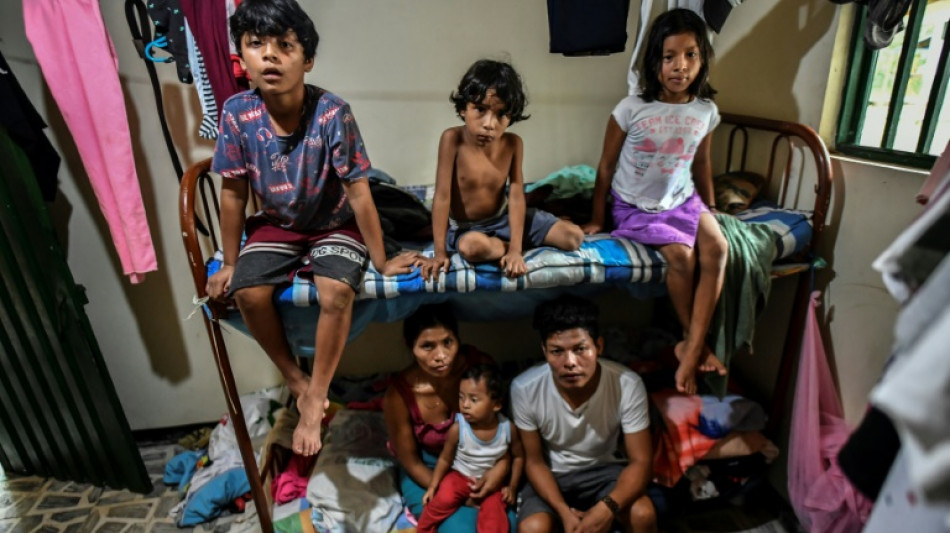
-
 Yamal heroics preserve Barca Champions League final dream
Yamal heroics preserve Barca Champions League final dream
-
2026 T20 World Cup 'biggest women's cricket event in England' - ECB
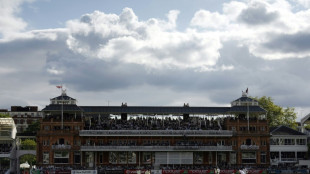
-
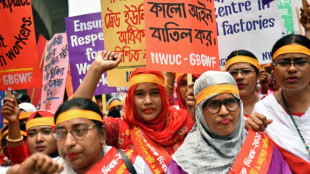 Bangladesh begins three days of mass political rallies
Bangladesh begins three days of mass political rallies
-
Children learn emergency drills as Kashmir tensions rise
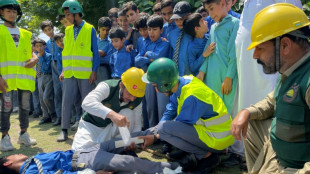
-
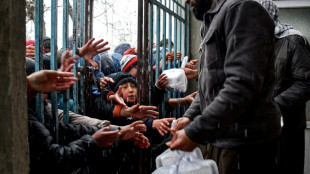 Millions of children to suffer from Trump aid cuts
Millions of children to suffer from Trump aid cuts
-
Veteran Wallaby Beale set for long-awaited injury return
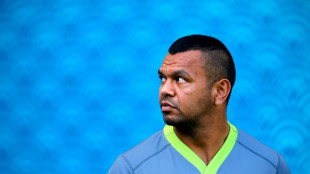
-
 Syria's Druze take up arms to defend their town against Islamists
Syria's Druze take up arms to defend their town against Islamists
-
Tesla sales plunge further in France, down 59% in April

-
 US calls on India and Pakistan to 'de-escalate'
US calls on India and Pakistan to 'de-escalate'
-
Israel reopens key roads as firefighters battle blaze

-
 Europe far-right surge masks divisions
Europe far-right surge masks divisions
-
James will mull NBA future after Lakers playoff exit

-
 Ukraine's chief rabbi sings plea to Trump to side with Kyiv
Ukraine's chief rabbi sings plea to Trump to side with Kyiv
-
Australian mushroom meal victim 'hunched' in pain, court hears

-
 Lakers dumped out of playoffs by Wolves, Rockets rout Warriors
Lakers dumped out of playoffs by Wolves, Rockets rout Warriors
-
Booming tourism and climate change threaten Albania's coast

-
 US reaching out to China for tariff talks: Beijing state media
US reaching out to China for tariff talks: Beijing state media
-
Tariffs prompt Bank of Japan to lower growth forecasts

-
 Kiss faces little time to set Wallabies on path to home World Cup glory
Kiss faces little time to set Wallabies on path to home World Cup glory
-
Serbian students, unions join forces for anti-corruption protest

-
 Slow and easily beaten -- Messi's Miami project risks global embarrassment
Slow and easily beaten -- Messi's Miami project risks global embarrassment
-
Fan in hospital after falling to field at Pirates game

-
 Nuclear power sparks Australian election battle
Nuclear power sparks Australian election battle
-
Tokyo stocks rise as BoJ holds rates steady

-
 Bank of Japan holds rates, lowers growth forecasts
Bank of Japan holds rates, lowers growth forecasts
-
'Sleeping giants' Bordeaux-Begles awaken before Champions Cup semis

-
 Napoli eye Scudetto as Inter hope for post-Barca bounce-back
Napoli eye Scudetto as Inter hope for post-Barca bounce-back
-
Germany's 'absolutely insane' second tier rivalling Europe's best

-
 PSG minds on Arsenal return as French clubs scrap for Champions League places
PSG minds on Arsenal return as French clubs scrap for Champions League places
-
UK WWII veteran remembers joy of war's end, 80 years on

-
 Myanmar junta lets post-quake truce expire
Myanmar junta lets post-quake truce expire
-
Rockets romp past Warriors to extend NBA playoff series

-
 Messi, Inter Miami CONCACAF Cup dream over as Vancouver advance
Messi, Inter Miami CONCACAF Cup dream over as Vancouver advance
-
UN body warns over Trump's deep-sea mining order

-
 UK local elections test big two parties
UK local elections test big two parties
-
US judge says Apple defied order in App Store case

-
 Seventeen years later, Brood XIV cicadas emerge in US
Seventeen years later, Brood XIV cicadas emerge in US
-
Scorching 1,500m return for Olympic great Ledecky in Florida

-
 Israel's Netanyahu warns wildfires could reach Jerusalem
Israel's Netanyahu warns wildfires could reach Jerusalem
-
Istanbul lockdown aims to prevent May Day marches

-
 DEA Unconstitutional Marijuana Hearing - MMJ to File Emergency Injunction and Suit for Irreparable Harm
DEA Unconstitutional Marijuana Hearing - MMJ to File Emergency Injunction and Suit for Irreparable Harm
-
Formation Metals Announces Appointment of Adrian Smith to Advisory Committee

-
 Cerrado Gold Announces Q4 And Annual 2024 Financial Results
Cerrado Gold Announces Q4 And Annual 2024 Financial Results
-
Australian guard Daniels of Hawks named NBA's most improved

-
 Mexico City to host F1 races until 2028
Mexico City to host F1 races until 2028
-
Morales vows no surrender in bid to reclaim Bolivian presidency
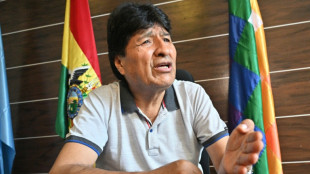
-
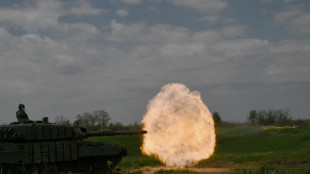 Ukraine, US sign minerals deal, tying Trump to Kyiv
Ukraine, US sign minerals deal, tying Trump to Kyiv
-
Phenomenons like Yamal born every 50 years: Inter's Inzaghi

-
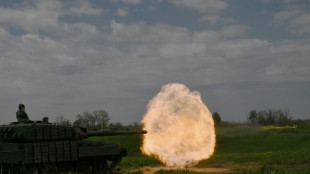 Ukraine, US say minerals deal ready as Kyiv hails sharing
Ukraine, US say minerals deal ready as Kyiv hails sharing
-
Global stocks mostly rise following mixed economic data
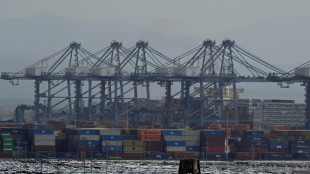

Ghost towns left in the wake of fighting for Colombia's drug spoils
Empty streets and hurriedly abandoned homes pocked with bullet holes: a war for control of the lucrative drug trade is laying waste to rural communities along Colombia's Pacific-bound cocaine export route.
Tens of thousands have fled as fighting between guerrillas and narcos vying for control of farmland and smuggling routes has shifted from the mountains to right in the midst of rural communities.
Some of the fighters set up operations bases in the newly abandoned homes.
"What we have had to go through, see and hear is unspeakable," a bitter-ender who declined to give his name, told AFP in the village of La Colonia, near the port city of Buenaventura, where armed groups recently moved in.
The civilians who stay behind "are confined, threatened, frightened," added Diego Portocarrero, who himself had escaped La Colonia for Buenaventura in February.
At highest risk are villages on the banks of the Calima and San Juan rivers -- key arteries for cocaine smuggling via the Pacific to the United States.
Homes in these communities pay testament to the battle: riddled with bullet holes, boarded up and locked with rudimentary chains.
Buildings sport the competing graffiti tags of the main protagonists in the fighting: the ELN guerrilla group and the Gulf Clan drug cartel (AGC).
As control changes hands, the tag of the victor is simply spray-painted over that of their rival.
- Recent phenomenon -
Nancy Hurtado, 52, is one of those who fled to Buenaventura in April after an attack on her village of San Isidro.
"They came in shooting, taking people out of houses, children too," she told AFP.
Life in exile is hard -- sharing space with hundreds of others in a sports stadium with improvised kitchens, laundry rooms and sleeping on the floor.
But the alternative is infinitely worse.
"That they catch you, chop you up, throw the pieces in a bucket... who wants to die like that?" asked Hurtado, who fashioned a make-shift bedroom with blankets and towels thrown over a netted football goal.
Dozens of members of the Wounaan Nonam ethnic group have taken refuge at the offices of an indigenous radio station in the city, where they have access to water for five hours a day, every other day.
They fled from fighting in the nearby village of Bajo San Juan in February.
"All that stayed behind was our homes, the dogs, the chickens," said Edgar Garcia, 45.
Juan Manuel Torres, a researcher at the Peace and Reconciliation Foundation (Pares), said armed groups settling among communities, "even camouflaged and armed," was a relatively recent and ever-more common phenomenon.
"They take over houses in the middle of the community, they don't have camps like before, and this is a... factor that makes some (inhabitants) move," he said.
This is happening in spite of the 2016 peace agreement that disarmed the FARC guerrilla group and was meant to end the violence after nearly six decades of internal conflict.
Many of the areas abandoned by the FARC have since become battle grounds for the ELN, drug cartels and FARC dissidents who rejected the 2016 pact.
- Always 'the losers'-
Nestled between the ocean, the jungle and mangrove forests, the city of Buenaventura has seen some 300,000 people displaced by violence in the past six years.
Many live in shelters; nine in ten are AfroColombian.
On top of a poverty rate of 41 percent and unemployment at almost 20 percent, the displaced also have to contend with the violence and extortion meted out by gangs that operate from the port.
The number of homicides in Buenaventura rose from 73 in 2017 to 195 last year, official data shows.
Often, dismembered bodies are thrown into the sea, according to witness accounts and rights groups.
The displaced express little hope of better days emerging from presidential elections this week, in which they cannot participate anyway as they are exiled from the areas where they are registered to vote.
"We will always be the losers" in an ongoing tug-of-war for territory and influence, said Portocarrero.
A.Jones--AMWN